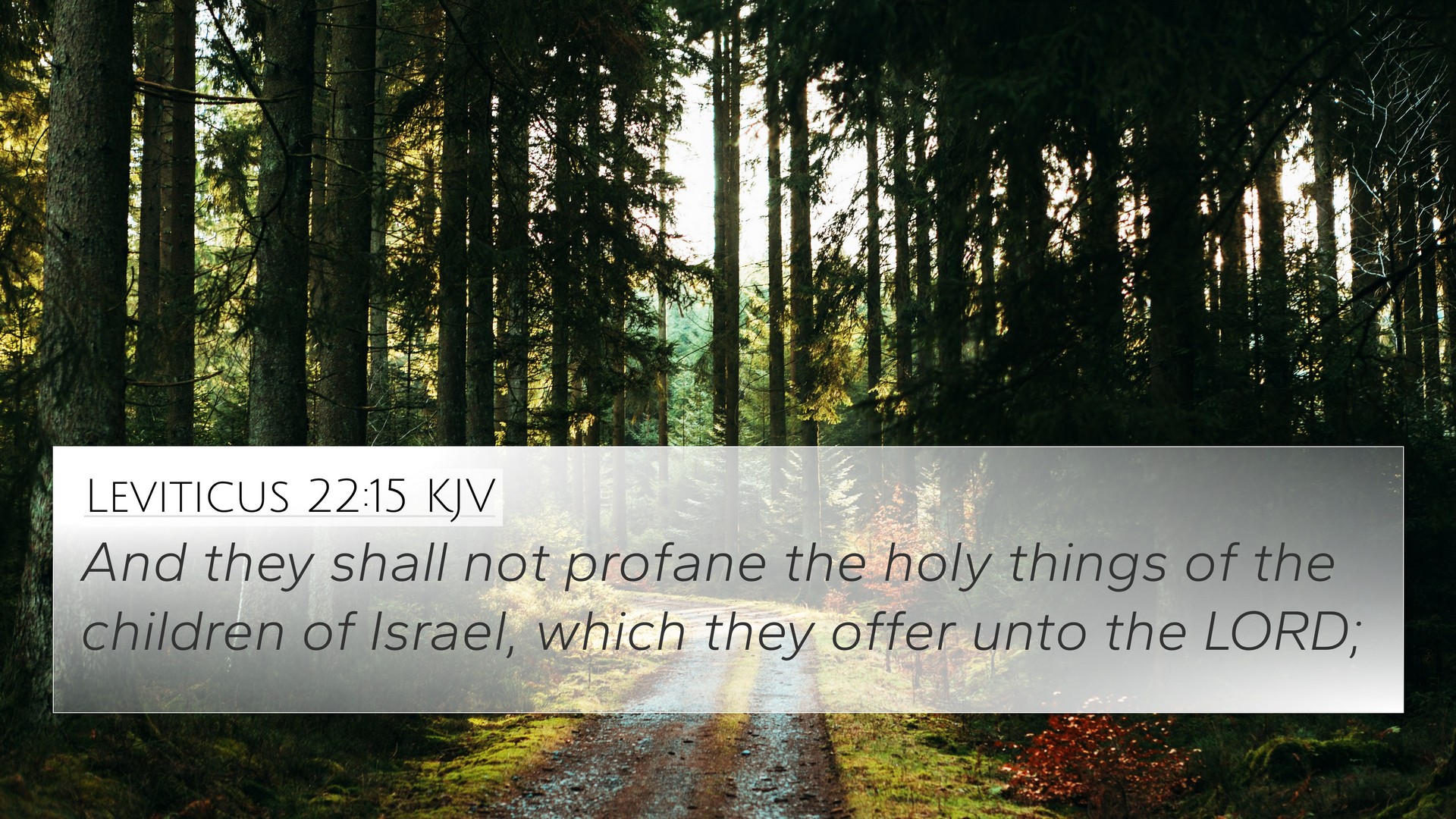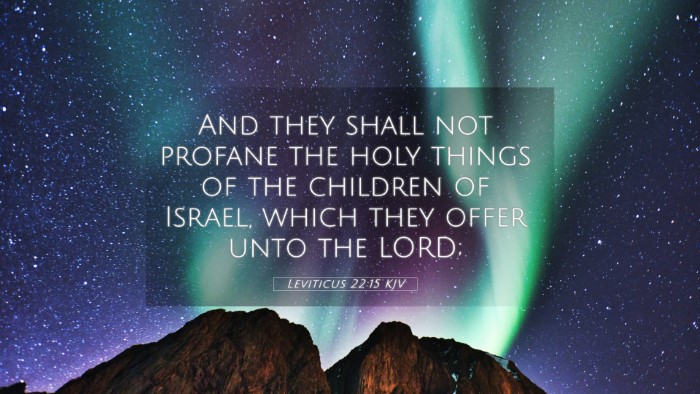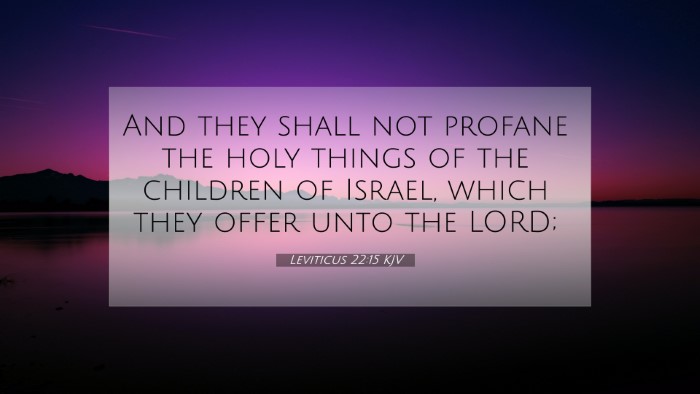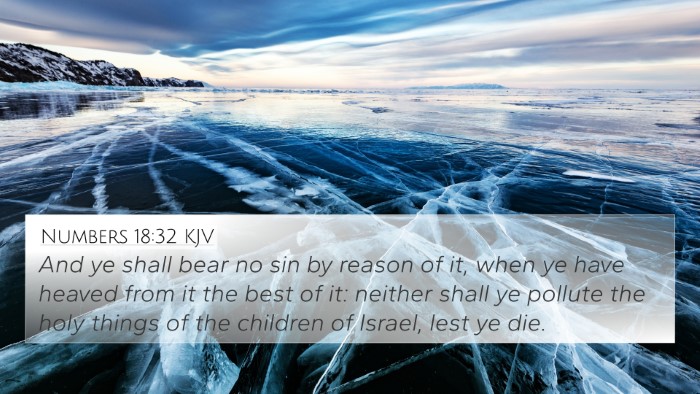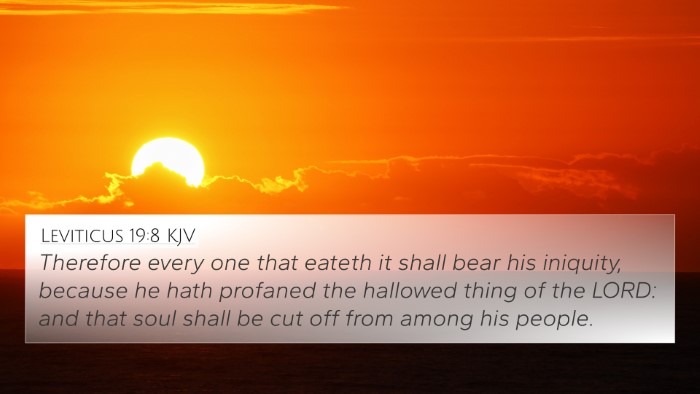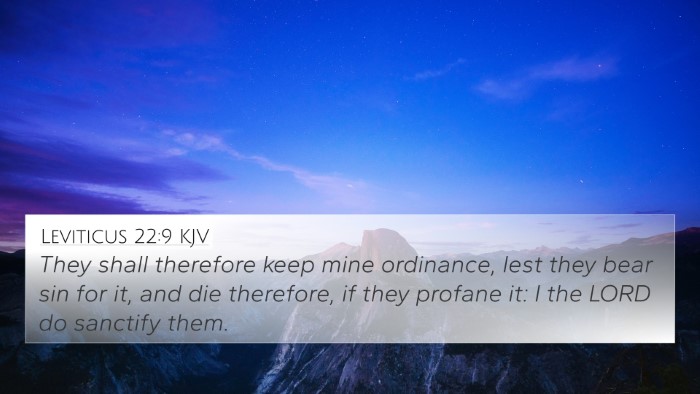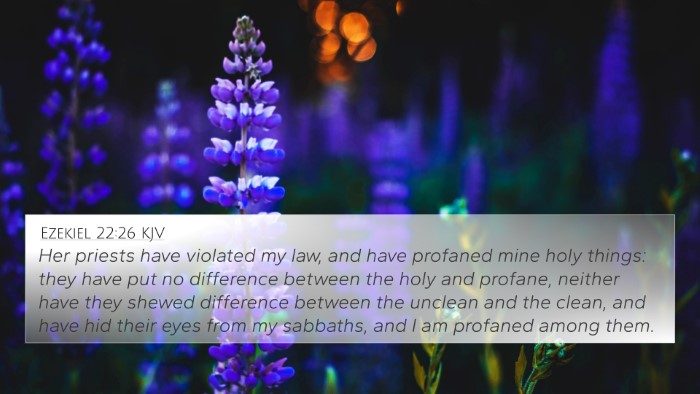Understanding Leviticus 22:15
Leviticus 22:15 states: "And they shall not profane the holy things of the children of Israel, which they offer unto the LORD." This verse encapsulates the importance of holiness and the reverence due to the offerings made to God.
Commentary Summary
This verse addresses the responsibilities of the priests in relation to the sacred offerings of Israel. The interpretation arises from various public domain commentaries, which provide comprehensive insights into its meaning.
Matthew Henry’s Commentary
Henry emphasizes that the priests are charged with the sacred duty of maintaining the holiness of the offerings presented to God. He notes that these offerings represent the dedication of the people to God, and thus, any act of profanation reflects a lack of respect for God's commandments. This underscores the theme of purity and holiness, pivotal in worship.
Albert Barnes’ Notes
Barnes elaborates on the consequences of violating the sanctity of holy things. He points out that profaning these offerings not only defiles the gifts presented to God but also undermines the relationship between God and His people. Barnes stresses that it is essential for the priests to uphold their duties with the utmost seriousness to avoid divine disfavor.
Adam Clarke’s Commentary
Clarke discusses the nature of the offerings and the intentions behind them. He describes how the offerings are meant to be pure reflections of the worshippers' hearts. Clarke highlights that the verse serves as a reminder of the need for sincerity in approach to God and underscores the divine expectation that worship should be conducted in a manner befitting God's holiness.
Key Themes and Concepts
- Holiness: The necessity of maintaining the sanctity of offerings is a recurring theme throughout Levitical laws.
- Priestly Responsibility: The role of priests as intermediaries is critical; they must ensure that worship practices are followed correctly.
- Sanctity of Offerings: Offerings are not mere rituals; they symbolize the covenant relationship between God and His people.
Bible Cross-References
Leviticus 22:15 connects to various other verses which enhance its understanding. Here are some relevant cross-references:
- Exodus 28:35: Highlights the importance of priestly garments during sacred duties.
- Leviticus 10:1-2: Discusses the severe consequences of offering unauthorized fire before the Lord, pointing to the importance of adhering to divine instructions.
- Malachi 1:6-8: Addresses the disrespect shown in offerings and God's displeasure with such actions.
- Numbers 18:1-5: Confirms the duties and privileges of the priest in regard to holy offerings.
- Deuteronomy 12:11: Discusses where and how offerings should be made, stressing the sacred nature of these acts.
- Hebrews 13:15: Connects the New Testament perspective on offerings, affirming our continual duty to present spiritual sacrifices.
- Matthew 5:23-24: Encompasses the importance of reconciling relationships before presenting offerings to God.
Connections with Other Bible Verses
This verse draws parallels with various aspects of biblical teachings concerning worship and offerings:
- 1 Peter 2:5: Serves as a reminder that believers are a royal priesthood offering spiritual sacrifices.
- Romans 12:1: Encourages believers to present their bodies as living sacrifices, linking New Testament worship with Old Testament practices.
Conclusion
Leviticus 22:15 serves as a profound reminder of the holiness demanded in worship and the serious responsibilities of those who lead such practices. It invites believers to reflect upon their own offerings and attitudes toward God by underlining the principles of reverence and integrity in the acts of worship.
Utilizing Cross-References for Deeper Study
For those looking to conduct a comprehensive Bible cross-reference study, utilizing tools such as a bible concordance or a bible cross-reference guide can provide invaluable insights. These resources assist in unveiling connections and thematic linkages across the scriptures, enriching one’s understanding of biblical principles.
